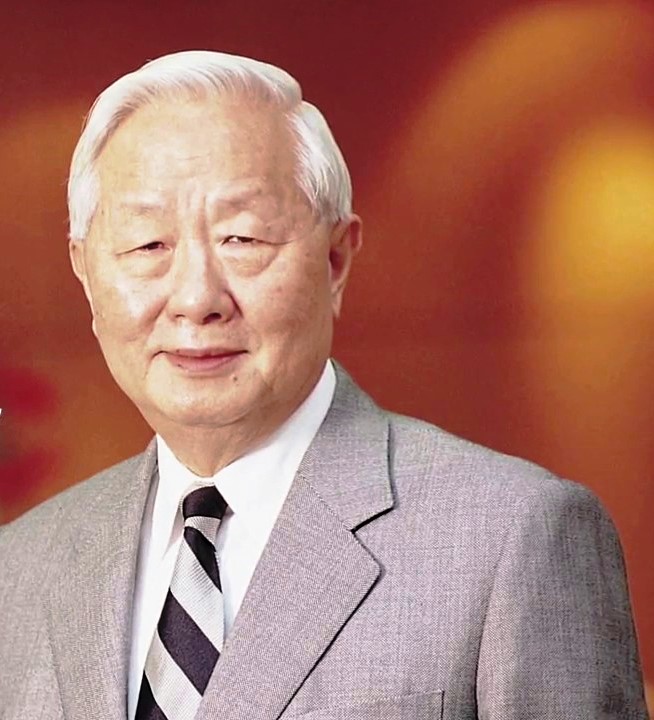日期:2021/06/20 IAE 報導

Morris Chang (English: Morris Chang, born July 10, 1931), a world-renowned semiconductor entrepreneur, founder of TSMC, and academician of the Institute of Industrial Research of the Republic of China. From 2018 to 2020, he represented the President of the Republic of China on his mission to APEC. Born in Ningbo, Zhejiang, China, he grew up in Shanghai, China and Hong Kong. He studied at Harvard University in the United States, graduated from the Department of Mechanical Engineering at the Massachusetts Institute of Technology, and received a PhD in Electrical Engineering from Stanford University. He is a professional technician with rich humanistic qualities in Taiwan. The motto is: "Integrity and integrity." He once served as the president of the Industrial Technology Research Institute and a director of the Massachusetts Institute of Technology. He was also the chairman of the World Advanced Integrated Circuit Company. He was awarded the IEEE Medal of Honor and was included in the Zhejiang Merchants Hall of Fame by the Zhejiang Gongshang University Zhejiang Merchants Museum. He has " Known as the "Godfather of Semiconductors"[5]. Was a member of the Board of Trustees of MIT and served on the Board of Directors of the New York Stock Exchange). Among Taiwan's 50 richest people announced by "Forbes" in 2020, Zhang Zhongmou's assets are US$1.5 billion, ranking 28th.
Zhang Zhongmou - Wikipedia
life
Early days
Zhang Zhongmou was born in Ningbo, Zhejiang in 1931. His father, Zhang Weiguan, was the director of finance in Yin County. He moved to Nanjing in 1932 and Guangzhou in 1937. When the Anti-Japanese War broke out and Guangzhou was bombed by the Japanese army, he moved to British Hong Kong. In 1941, the Pacific War broke out and the Japanese army occupied Hong Kong. In 1943, he moved to Chongqing and entered Chongqing Nankai Middle School. After the victory of the Anti-Japanese War in 1945, he moved to Shanghai and entered Shanghai Nanyang Model Middle School. In 1948, during the war between the Kuomintang and the Communist Party, he returned to Hong Kong with his family and studied at Hong Kong Pui Ying Secondary School.
In 1949, he went to Boston to study at Harvard University, and the following year he transferred to the Department of Mechanical Engineering at the Massachusetts Institute of Technology. He received his bachelor's and master's degrees in mechanical engineering from the Massachusetts Institute of Technology in 1952. In the same year, he married his first wife, Christine Chen.
career experience
At the beginning, Zhang Zhongmou said that he was considering working at Ford Motor Company. However, the salary offered by Ford Motor Company was one dollar less than the monthly salary of Shivania Company's semiconductor department, so he chose to work at Shivania Company and entered the semiconductor industry. In 1958, he went to work in the Texas Instruments Division and became the engineering manager three years later. He received his PhD in Electrical Engineering from Stanford University in the United States in 1964.
In 1972, he was promoted to deputy general manager of Texas Instruments Group. In 1983, he left Texas Instruments and joined General Instrument Company as chief operating officer.
In 1985, at the invitation of Sun Yunxuan, he went to Taiwan to serve as the president of the Industrial Technology Research Institute [7] and concurrently as the chairman of UMC. The following year, he was organized by chance to establish Taiwan Semiconductor Manufacturing Co., Ltd., a joint venture between Philips of the Netherlands and the Industrial Technology Research Institute. Chairman and President (CEO). According to Zhang, when he was developing the foundry model, he invited Intel to become a shareholder, but Intel always insisted on IDM and was not taken seriously [8].
In 1994, World Advanced Integrated Circuit Company was founded.
In 2005, he obtained membership of the Committee of 100. In the same year, he resigned as CEO of TSMC, and Tsai Li-hsing became the CEO of the company.
In November 2006, he represented Chinese Taipei at the Asia-Pacific Economic Cooperation Summit held in Vietnam that year[9]; he arrived in the host city of Hanoi, Vietnam, on November 18.
On June 11, 2009, he announced his return as CEO of TSMC.
On July 18, 2013, he announced that he would resign as CEO of TSMC [13]; on November 12, he resigned as CEO of TSMC and only served as chairman.
On October 2, 2017, it was announced that he would resign from TSMC and officially retire after the regular meeting of TSMC shareholders in June 2018.
On June 5, 2018, it was announced at the regular meeting of shareholders of TSMC that he would not be renewed as a director, would not serve as a consultant, and would not serve as an honorary director. The company was appointed by Liu Deyin and Wei Zhejia as chairman and president.
after retirement
On July 10, 2018, Chang returned to TSMC with his wife Chang Shufen to attend the opening ceremony of the "Morris Chang Building" held for him at TSMC's Hsinchu headquarters.
Media and Association Honors
In 1999, he was first selected as "one of the best managers in the world" by the US "Bloomberg Business Weekly".
In 2000, he was awarded the Robert N. Noyce Award by the IEEE Society. In the same year, he was named one of the "Twenty-six Most Influential General Managers" by Time Magazine in the United States.
In November 2005, "Electronic Business" named him one of the "10 Most Influential Leaders in the World".
In 2011, he won the IEEE Medal of Honor.
In 2016, when "Nihon Keizai Shimbun" selected the top 20 MVPs of Asian companies, Zhang Zhongmou and Terry Gou were on the list.
official honors
In 2011, he was awarded the Second Class Medal of Stars by Ma Ying-jeou, President of the Republic of China.
In 2018, he was awarded the First Class Qingyun Medal by President Tsai Ing-wen of the Republic of China.